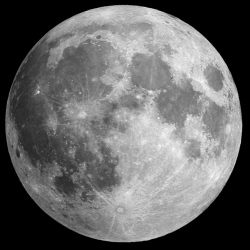
Five teams competing for the $30 million Google Lunar XPRIZE have just been awarded a combined $5.25 million for meeting significant milestones in developing a robot that can safely land on the surface of the moon, travel 500 meters over the lunar surface, and send mooncasts back to the Earth.
A tiny startup from India, Team Indus, with no experience in robotics or space flight just won $1 million of this prize. It stood head to head with companies that had been funded by billionaires, had received the assistance of NASA, and had the support of leading universities.
The good news is that governments no longer have a monopoly on space exploration. In two or three decades, we will have entrepreneurs taking us on private spaceflights to the moon. That is what has become possible.
What has changed since the days of the Apollo moon landings is that the cost of building technologies has dropped exponentially. What cost billions of dollars then costs millions now, and sometimes even less. Our smartphones have computers that are more powerful than the Cray supercomputers of yesteryear, which had strict export controls and cost tens of millions of dollars.
We carry high-definition cameras in our pockets that are more powerful than those on NASA spacecraft. The cameras in the Mars Curiosity Rover, for example, have a resolution of 2 megapixels with 8GB of flash memory, the same as our clunky first-generation iPhones. The Apollo Guidance Computer, which took humans to the moon in 1966, had a 2.048 MHz processor, slower than those you find in calculators and musical greeting cards. The same technologies as are available in the United States and Europe are available worldwide. Innovation has globalized.
I met Team Indus while I was in Mumbai to speak at INK last November. When they told me they were competing for the Google Lunar XPRIZE. I didn’t take them seriously because I had seen their counterpart in Silicon Valley, Moon Express, which has the support of tech moguls such as Naveen Jain.
How could a scrawny little startup in Bangalore take on Naveen Jain, former NASA engineer Bob Richards, and NASA itself, I thought. The Moon Express team is a force of nature, has the advantage of being on the NASA Ames Research campus, and has been given R&D worth billions of dollars by NASA.
Team Indus was also up against Astrobotic, which is a spinoff from the Carnegie Mellon University Robotics Institute, and Israel-based SpaceIL, which has the backing of the country’s top research institutes.
The company’s win blew my mind. Even though the subject of my INK talk was how Indian entrepreneurs could help change the world, I didn’t think it was already happening.
